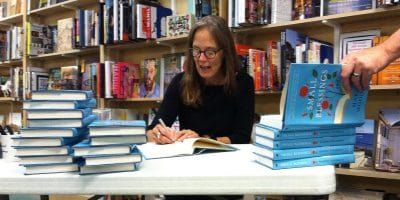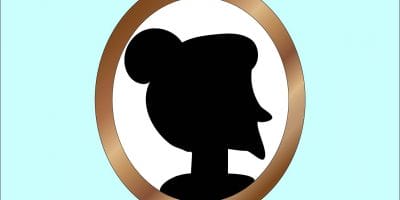Hey Elderly Aunt, I’m trying to do a better job of managing my sad emotions and engaging in “positive thinking.” Any suggestions?

Of course the Elderly Aunt has suggestions, but before she lays them on you, she feels compelled to go on a bit about her take on the difference between “sad emotions” and “depression.”
Sadness, as she sees it, is a natural reaction to distressing events. Over time, sadness can morph into an emotional habit that should be addressed in therapy. Depression, on the other hand, is an illness that mandates professional treatment. An acquaintance of the Elderly Aunt (who incidentally has been accused of being the Elderly Aunt!) says that during her own pre-medicated wrastles with clinical depression, what she described as a “loop tape of sorrow” ran endlessly in her head. And doing anything at all took tremendous effort—even doing things she normally enjoyed.
So, dear reader, if there’s the slightest chance that you are suffering from depression, hie thee to a doctor immediately. Depression isn’t a character failing — it’s a treatable medical condition.
Now, the Elderly Aunt feels perfectly free to move on to suggesting away! As usual, she begins with a question: Can you identify specific losses that you are sad about? Someone’s death, perhaps? The loss of a job, or a move that took you away from close friends? The failure of an important relationship? Concerns about aging parents? Even the loss of your youthful optimism and hope?
If you can identify specific losses, write them down along with the dates they occurred. Then face them, acknowledge their impact and accept that you would have to be a robot notto feel sad about them. It is healthy behavior to grieve our losses, and according to both the Elderly Aunt’s own experience and Psychology Today: “Grief is complex; it obeys no formula and has no set expiration date.” Or as Yogi Berra put it, “It ain’t over ’till it’s over.”
The Elderly Aunt suggests the way through grief is to accept it as a natural reaction to a specific event and give yourself permission to be sad about what happened. The Elderly Aunt would be the first to acknowledge that she, herself, has not been good at grieving. She has tended to confuse grief with self-pity—which she abhors—and that led her to attempt to carry on as usual in the face of loss. Looking back, she can see that unacknowledged grief turned her into a prickly and moody beast at times. How much easier it would have been on everyone if she’d just had the guts to be honest with herself?
If you’re not sad about something specific, gentle reader, then it seems likely to the Elderly Aunt that your sad emotions are rooted in dissatisfactions and/or frustrations. So what are these dissatisfactions and/or frustrations? Are they with yourself, your family, your job? Again, make a list. Be specific. Do not feel guilty about what you feel. You don’t have to act on your feelings, but good mental health demands you own them.
Say your partner’s mother bugs the daylights out of you with her passive-aggressive behavior. As the Elderly Aunt sees it, you have three clear choices: You can avoid all contact with her, you can continue being bugged, or you stop giving this aspect of her behavior control over your mood. Sure her passive-aggressiveness bugs you, but so what? She raised a hell of a good—for the most part, anyway—partner!
The Elderly Aunt’s practical advice for staying on an even emotional keel is atypically unoriginal. She suggests you eat right, exercise regularly, and get enough sleep. But she also suggests that you make absolutely certain to have a bit of fun every single day. And by fun, she does not mean something selfless and noble, but rather something you really, really, reallyenjoy doing.
As for promoting positive thinking, the Elderly Aunt agrees with Émile Coué:
If you persuade yourself that you can do a certain thing, provided this thing be possible, you will do it, however difficult it may be. If, on the contrary, you imagine that you cannot do the simplest thing in the world, it is impossible for you to do it, and molehills become for you unscalable mountains.
Émile Coué
So the Elderly Aunt suggests you think of emotional and physical self-care as a public service — as surely you are more useful to others when you look after yourself.
The Elderly Aunt offers her thoughtful responses to your questions about this wild ride we call life on every other Monday. And as a general disclaimer—to quote the elves from The Lord of the Rings — “… advice is a dangerous gift, even given from the wise to the wise.”
Got a question for the Elderly Aunt? Ask her on Facebook or email your question to [email protected] with the subject line “Elderly Aunt question.” (Just please don’t ask detailed financial questions).













